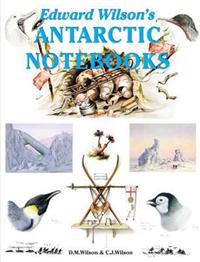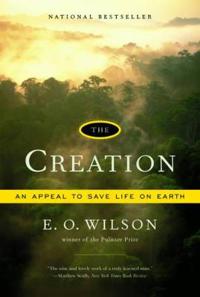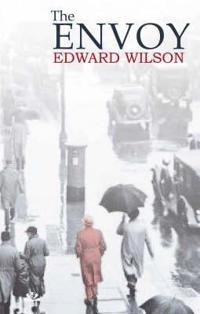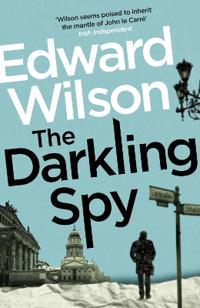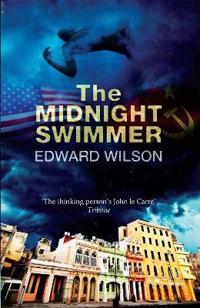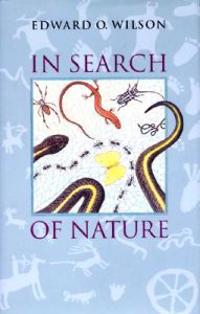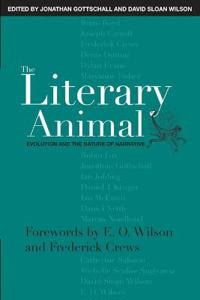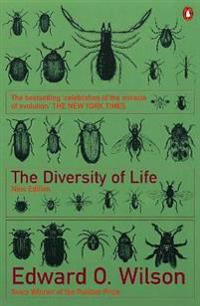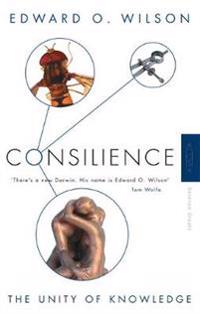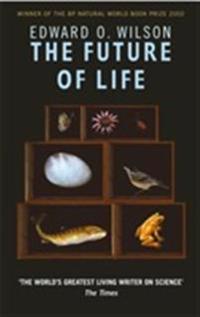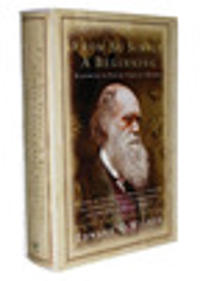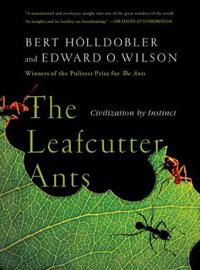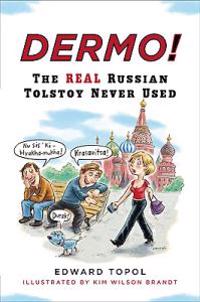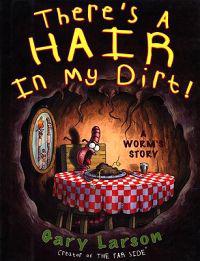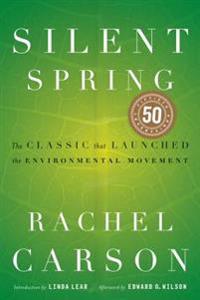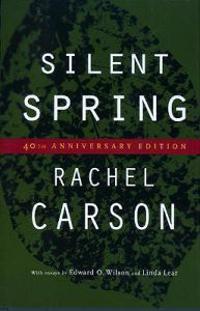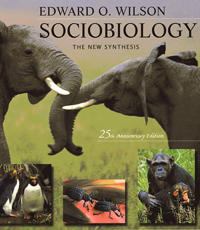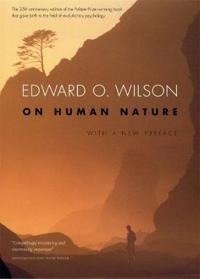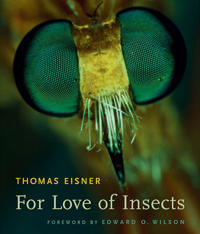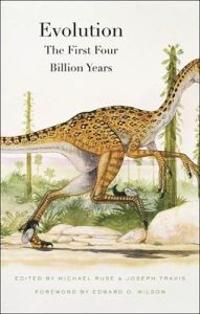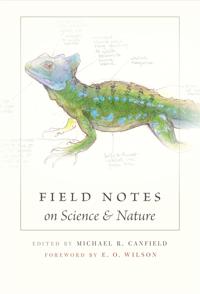Edward Wilson's Antarctic Notebooks (Inbunden)
avChristopher Wilson, Nicholas Reardon
ISBN: 9781874192510 - UTGIVEN: 201109Dr. Edward A. Wilson (1872-1912) is widely regarded as one of the finest artists ever to have worked in the Antarctic. Sailing with Captain Scott aboard 'Discovery' (1901-1904), he became the last in a long tradition of 'exploration artists' from an age when pencil and water-colour were the main met[...]
The Creation (Häftad)
avEdward Wilson
ISBN: 9780393330489 - UTGIVEN: 200710Called one of the greatest men alive by The Times of London, E. O. Wilson proposes an historic partnership between scientists and religious leaders to preserve Earth s rapidly vanishing biodiversity.[...]
Edward Thomas (Inbunden)
avJean Moorcroft Wilson
ISBN: 9781408187135 - UTGIVEN: 2015-07Along with Sassoon and Wilfred Owen, Edward Thomas is by any reckoning a major first world war poet. A war poet is not one who chooses to commemorate or celebrate a war, but one who reacts against having a war thrust upon him. His great friend Robert Frost wrote 'his poetry is so very brave, so unco[...]
Black Sabbath Crosses and Thorns the Tony Martin Years (Häftad)
avEdward Wilson Baggett
ISBN: 9781496084460 - UTGIVEN: 2015-04The Envoy (Storpocket)
avEdward Wilson
ISBN: 9781906413125 - UTGIVEN: 200802"The Envoy", Edward Wilson's second novel, will prove familiar territory for fans on "A River in May". The setting is 1950s London, at the height of the Cold War. Kit Fournier is ostensibly a senior diplomat at the US embassy in Grosvenor Square who is also CIA Chief of Station. With the arms race l[...]
In Search of Nature (Pocket)
avEdward O. Wilson, Laura Simonds (ILT) Southworth, Edward O. Wilson
ISBN: 9781559632164 - UTGIVEN: 1997-09Focusing on the interrelationship of wild nature and human nature, a collection of short writings and essays explores "Animal Nature, Human Nature," "The Patterns of Nature," and "Nature's Abundance"[...]
The Literary Animal (Pocket)
avJonathan (EDT) Gottschall, David Sloan (EDT) Wilson, Edward O. (FRW) Wilson
ISBN: 9780810122871 - UTGIVEN: 2005-12In recent years, articles in major periodicals from the New York Times Magazine to the Times Literary Supplement have heralded the arrival of a new school of literary studies that promises-or threatens-to profoundly shift the current paradigm. This revolutionary approach, known as Darwinian literary[...]
The Diversity of Life (Storpocket)
avEdward O. Wilson
ISBN: 9780140291612 - UTGIVEN: 200104"Not since Darwin has an author so lifted the science of ecology with insight and delightful imagery" - Richard Dawkins. In this book a master scientist tells the great story of how life on earth evolved. E.O. Wilson eloquently describes how the species of the world became diverse, and why the threa[...]
Consilience (Storpocket)
avEdward O. Wilson
ISBN: 9780349111124 - UTGIVEN: 199911In this groundbreaking new book, one of the world's greatest living scientists argues for the fundamental unity of all knowledge and the need to search for what he calls consilience, the composition of the principles governing every branch of learning. Edward O Wilson, the pioneer of sociobiology an[...]
The Future of Life (Storpocket)
avEdward O. Wilson
ISBN: 9780349115795 - UTGIVEN: 2003-07Our world is far richer than previously conceived, yet so ravaged by human activity that half its species could be gone by the end of the present century. These two contrasting themes--unexpected magnificence and underestimated peril--have originated during the past two decades of research. In this [...]
From So Simple A Beginning (Inbunden)
avCharles Darwin, Edward O. Wilson, Charles Darwin
ISBN: 9780393061345 - UTGIVEN: 200511A gift collection of Darwin's four seminal works, introduced and edited by a two-time Pulitzer Prize-winning Harvard professor, includes Voyage of the H.M.S. Beagle, The Origin of Species, The Descent of Man, and The Expression of Emotions in Man and Animals, in a volume complemented by an index tha[...]
The Leafcutter Ants (Häftad)
avBert Holldobler, Edward O. Wilson
ISBN: 9780393338683 - UTGIVEN: 201010From the Pulitzer Prize-winning authors of The Ants comes this dynamic and visually spectacular portrait of Earth's ultimate superorganism. With a text suitable for both a lay and a scientific audience, The Leafcutter Ants is the most detailed and authoritative description of an ant species ever pro[...]
Dermo! (Pocket)
avEdward Topol, Laura E. Wolfson, Kim Wilson Brandt
ISBN: 9780452277458 - UTGIVEN: 199708One doesn't have to be Jewish to recognize the words which have made their way into every fold of popular language: Chutzpah, Mensch, Tokhes, Mishmash, Nudge, Shtick, Schmaltzy, Schlep, Icky, and so on. Then there are phrases whose meaning and syntax are borrowed from Yiddish: "bite your tongue," "d[...]
There's a Hair in My Dirt!: A Worm's Story (Inbunden)
avGary Larson, Edward Osborne Wilson
ISBN: 9780613229456 - UTGIVEN: 1999-10Silent Spring (Pocket)
avRachel Carson, Linda Lear, Edward O. Wilson
ISBN: 9780618249060 - UTGIVEN: 200210First published in 1962, Silent Spring alerted a large audience to the environmental and human dangers of indiscriminate use of pesticides, spurring revolutionary changes in the laws affecting our air, land, and water. âSilent Spring became a runaway bestseller, with international reverberation[...]
Silent Spring (Inbunden)
avRachel Carson, Linda Lear, Edward Osborne Wilson
ISBN: 9780618253050 - UTGIVEN: 200210First published in 1962, Silent Spring alerted a large audience to the environmental and human dangers of indiscriminate use of pesticides, spurring revolutionary changes in the laws affecting our air, land, and water. âSilent Spring became a runaway bestseller, with international reverberation[...]
Sociobiology (Pocket)
avEdward O. Wilson
ISBN: 9780674002357 - UTGIVEN: 200003When this classic work was first published in 1975, it created a new discipline and started a tumultuous round in the age-old nature versus nurture debate. This book is widely known as the object of bitter attacks by social scientists and other scholars who opposed its claim that human social behavi[...]
On Human Nature (Häftad)
avEdward O. Wilson
ISBN: 9780674016385 - UTGIVEN: 200410View a collection of videos on Professor Wilson entitled "On the Relation of Science and the Humanities" In his new preface E. O. Wilson reflects on how he came to write this book: how "The Insect Societies" led him to write "Sociobiology," and how the political and religious uproar that engulfed t[...]
For Love of Insects (Pocket)
avThomas Eisner, Edward O. (FRW) Wilson, Thomas Eisner
ISBN: 9780674018273 - UTGIVEN: 2005-10Independent Publisher Book Award for Best Science Book Winner of the 2003 Professional/Scholarly Publishing Award of the Association of American Publishers, Biology Category Imagine beetles ejecting defensive sprays as hot as boiling water; female moths holding their mates for ransom; caterpillars d[...]
Evolution (Inbunden)
avMichael Ruse, Joseph Travis, Edward O. Wilson
ISBN: 9780674031753 - UTGIVEN: 200902Spanning evolutionary science from its inception to its latest findings, from discoveries and data to philosophy and history, this book is the most complete, authoritative, and inviting one-volume introduction to evolutionary biology available. Clear, informative, and comprehensive in scope, "Evolut[...]
Field Notes on Science & Nature (Inbunden)
avMichael R. (EDT) Canfield, Edward O. (FRW) Wilson, Michael R. (EDT) Canfield
ISBN: 9780674057579 - UTGIVEN: 2011-05Once in a great while, as the New York Times noted recently, a naturalist writes a book that changes the way people look at the living world. John James Audubon's Birds of America, published in 1838, was one. Roger Tory Peterson's 1934 Field Guide to the Birds was another. How does such insight into[...]

